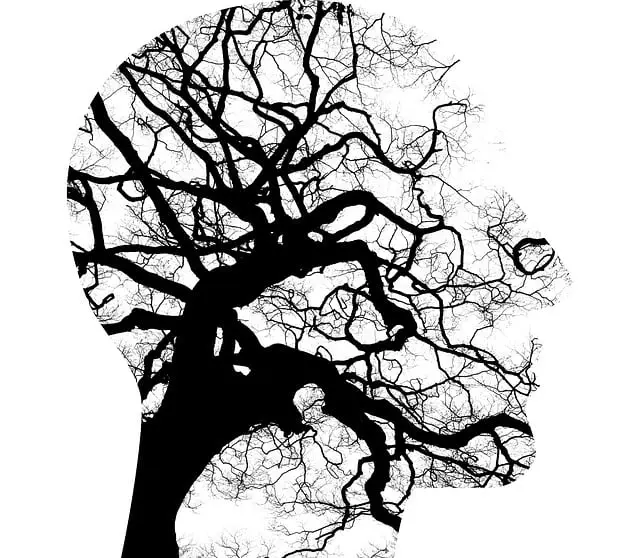The Kaiser Permanente behavioral health center in Arvada focuses on culturally sensitive mental healthcare, integrating cultural competency into services through learning diverse practices, beliefs, and communication styles. They address unconscious biases and language differences to provide personalized care tailored to each patient's needs. Key initiatives like the Mental Wellness Podcast Series and Community Outreach Program enhance inclusive environments and improve mental wellness outcomes for a diverse population.
In a diverse society, cultural sensitivity is paramount in mental healthcare. This article explores how the Kaiser Permanente behavioral health center in Arvada approaches this critical aspect. We delve into the understanding of cultural diversity within mental healthcare, uncover challenges and barriers faced by practitioners, and present strategies employed by Kaiser Permanente to foster culturally competent care. By examining these key areas, we highlight the importance of adapting services to meet the unique needs of a diverse patient population, ensuring accessible and effective treatment for all.
- Understanding Cultural Diversity in Mental Healthcare: A Kaiser Permanente Arvada Perspective
- Challenges and Barriers: Navigating Cultural Sensitivity in Clinical Practice
- Strategies for Culturally Competent Care: Enhancing Services at Kaiser Permanente Behavioral Health Center Arvada
Understanding Cultural Diversity in Mental Healthcare: A Kaiser Permanente Arvada Perspective

At Kaiser Permanente’s behavioral health center in Arvada, we recognize that mental healthcare must be culturally sensitive to effectively address the diverse needs of our community. Cultural diversity enriches our practice by offering a variety of perspectives and experiences that can enhance treatment outcomes. Our team is committed to understanding and respecting the unique cultural backgrounds of each patient, as this plays a significant role in their mental health journey.
By integrating cultural competency into our services, we aim to provide inclusive care tailored to individual needs. This involves learning about different cultural practices, beliefs, and communication styles related to mental health. For instance, recognizing that certain communities may prioritize collective over individual struggles or have specific rituals for healing can shape our approach to depression prevention and mood management. Moreover, offering social skills training adapted to diverse cultural contexts can foster a sense of belonging and improve overall well-being.
Challenges and Barriers: Navigating Cultural Sensitivity in Clinical Practice

Navigating cultural sensitivity in clinical practice presents unique challenges for mental healthcare providers, particularly within organizations like Kaiser Permanente behavioral health centers, such as the one in Arvada. One significant barrier is the potential for unconscious biases to influence treatment approaches. Providers must be mindful of their own cultural perspectives and how they might shape interactions with clients from diverse backgrounds. Misunderstandings can arise when attempting to apply universal therapeutic techniques without considering cultural nuances, leading to less effective care.
Additionally, language differences pose a significant hurdle in communicating effectively with patients. While translation services are available, they may not always capture the subtleties of cultural expression and communication styles. This challenge requires mental health professionals to adapt their practices, learn basic language phrases, and explore culturally sensitive interpretive methods to ensure clear and respectful communication. Incorporating initiatives like Self-Care Practices, Mental Health Education Programs Design, and Mental Wellness Journaling Exercise Guidance can facilitate a more inclusive environment and better outcomes for all clients, regardless of their cultural background.
Strategies for Culturally Competent Care: Enhancing Services at Kaiser Permanente Behavioral Health Center Arvada

At Kaiser Permanente Behavioral Health Center Arvada, we recognize that providing culturally competent care is essential for enhancing services and improving mental wellness outcomes. Our team actively incorporates strategies to understand and respect diverse cultural backgrounds, ensuring every patient receives personalized support. We believe this approach fosters a safe and inclusive environment, encouraging open communication and effective treatment.
One of our key initiatives includes the Mental Wellness Podcast Series Production, which offers culturally sensitive discussions on various topics affecting mental health in different communities. Additionally, we’ve implemented a Community Outreach Program to connect with local cultural groups, providing educational resources and support tailored to their unique needs. These efforts ensure that emotional healing processes are accessible and resonate with the diverse population we serve, reflecting our commitment to creating a compassionate and inclusive space at Kaiser Permanente Behavioral Health Center Arvada.
Cultural sensitivity is an integral part of providing quality mental healthcare, and the strategies outlined in this article offer a roadmap for improvement. By recognizing and addressing cultural barriers at the Kaiser Permanente Behavioral Health Center Arvada, we can enhance patient outcomes and ensure equitable access to care. Embracing culturally competent practices not only respects diverse communities but also fosters trust and strengthens relationships between healthcare providers and patients. This approach is essential to creating an inclusive environment where everyone receives personalized support tailored to their unique cultural backgrounds.






